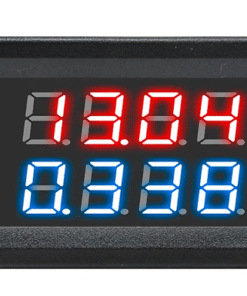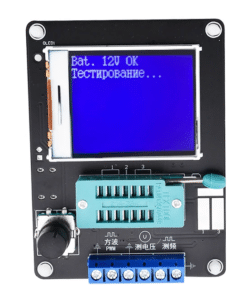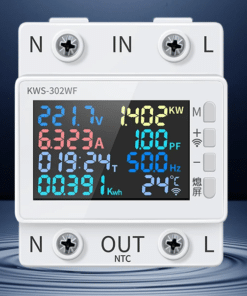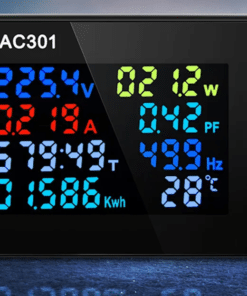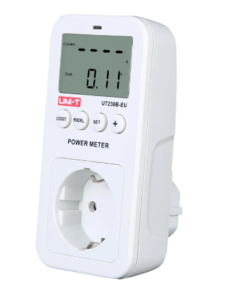Power Meter
A power meter is a device used to measure the electrical power consumed by a device or system. It measures the rate at which electrical energy is transferred.
Types of Power Meters:
-
Analog Power Meters:
- Traditional meters with a rotating dial to indicate power consumption.
- Less accurate and less versatile compared to digital meters.
-
Digital Power Meters:
- Modern meters that use digital electronics to display power consumption.
- More accurate and can provide detailed information like voltage, current, power factor, and energy consumption.
Applications of Power Meters:
- Home Energy Monitoring: Tracking energy usage to identify areas for energy conservation.
- Industrial Applications: Monitoring energy consumption in factories and manufacturing plants.
- Utility Metering: Measuring electricity consumption for billing purposes.
- Laboratory Testing: Measuring power consumption of electronic devices and circuits.
Key Features of Power Meters:
- Accuracy: Precise measurement of power consumption.
- Versatility: Ability to measure various parameters like voltage, current, power factor, and energy consumption.
- Data Logging: Storing historical data for analysis and optimization.
- Remote Monitoring: Remote access to meter data for real-time monitoring and control.
- Energy Efficiency: Helping identify energy-inefficient devices and practices.
By understanding and utilizing power meters, individuals and organizations can make informed decisions to reduce energy consumption and save costs.
Power Meter
Power Meter
Power Meter

